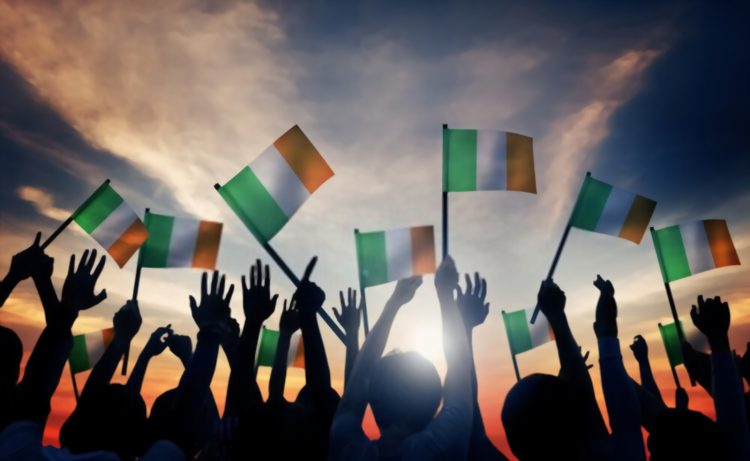The 2016 vote to withdraw the UK from the EU dramatically impacted devolved nations. In Northern Ireland, Brexit is a significant factor that can bring people closer to a united Ireland. If a referendum is held, inhabitants of Northern Ireland may courageously choose to be united with the Republic of Ireland.
NI, Republic Will Unite in Future
The UK’s departure from the European Union has had unpleasant domestic consequences. As Scottish National Party (SNP) seeks to hold an independence referendum, Irish nationalists think of a united Ireland. Brexit created an invisible sea border between mainland Britain and Northern Ireland. The province remains in the EU’s Single Market, so all goods entering Northern Ireland should comply with the EU’s rules.
Northern Irish now feel isolated, which caused dissatisfaction with the UK government. Polls suggest that voters in Northern Ireland think they will unite with the Republic of Ireland in the next ten years. Some two-thirds of voters believe if a referendum is held in 10 years, the result would be a united Ireland. Responders say they would choose to stay in the UK if a referendum was held today.
UK Partitioned Irish Ireland After Chaos
In May 1921, a border appeared on the island of Ireland that created Northern Ireland. A century ago, several decades of turmoil led to the division of the Irish island. Nationalists in Ireland for many years campaigned for home rule and were seeking a devolved parliament in Dublin. The unionists, who were the majority in the province of Ulster in the northeast, did not want home rule from Dublin.
Most of the nationalists in Ireland were Catholic, but the unionists were mainly Protestant. While Britain was busy with World War I, nationalists rebelled; Britain defeated the Easter Rising and executed many rebel leaders. This led to the Irish War of Independence. In 1919, Britain decided to partition Ireland. London offered nationalists a parliament in Dublin and gave Ulster unionist a parliament in Belfast.
The Republic of Ireland Created in Half of the Century
Britain partitioned Ireland, and the more significant part was Southern Ireland with 26 counties. Six out of the nine counties of Ulster belong to Northern Ireland. Ireland and Britain signed an Anglo-Irish Treaty in 1921, and most of Ireland became autonomous within the British empire. In December 1922, the Irish Free State created an independent country, but it officially became a republic in 1949. An Act named The Republic of Ireland Act 1948 had declared that the description of the state of Ireland was to be the Republic of Ireland.
The Parliament of the United Kingdom by the Ireland Act 1949 agreed with the Irish parliament’s Republic of Ireland Act 1948. With the Ireland Act of 1949, Britain confirmed that Northern Ireland remained a part of the UK, but its status could change with the consent of its inhabitants.
Brexit Disappointed the Northern Irish People
Brexit takes the entire UK, including Northern Ireland, out of the European Union. But the Republic of Ireland remains in the EU, so there is a distinction between NI and the Republic. Brexit has challenged the Good Friday Agreement that ended the Troubles in 1998. Brexit also triggered a sense of betrayal on the side of Northern Ireland’s inhabitants against Britain. The Irish unionists feel left alone on the other side of the custom border of the Irish Sea.
British and Irish governments and most of the politicians in Northern Ireland in 1998 signed an agreement ending troubles. The Agreement meant establishing a devolved government in Northern Ireland to share power between nationalists and unionists. It showed two bodies between Northern Ireland and the Republic to implement governmental authorities on the island of Ireland.
EU United Irish Citizens
The UK and the EU agreed on the Northern Ireland Protocol to avoid a hard border on the Irish island. But disagreements have appeared in one year ever since Brexit was implemented. The unionists and moderates feel being abandoned after withdrawal from the EU.British goods are not seen on store shelves, and producers undergo much paperwork to transfer products into Northern Ireland.
Historically, many Catholics experienced systematic injustice by British officials. Nationalists say Irish people were the victims of discrimination, and today, the province feels a new version of injustice. The EU reduced identity divisions, and Protestant unionists lived within the British world and Catholic nationalists within the Irish world. There are people in Northern Ireland who consider themselves both British and Irish. However, the Republic’s constitution talks about the will of the Irish nation to unite all people if nationalists seek to leave the UK.
51 Percent Needed to Bring United Ireland
The 1998 Good Friday Agreement gives the Northern Ireland Secretary to call a united Ireland referendum. It happens if the opinion polls find that most people are in favour of a united Ireland. A recent opinion poll by BBC Northern Ireland’s Spotlight program found that 43 per cent of Northern Ireland support a united Ireland. That is a warning for the UK as only 50 plus one per cent of voters could trigger a referendum.
If a referendum is held, consent of both sides of the border is needed to bring a united Ireland. If the south agrees too, four constitutional options are possible. A single central legislature is likely in Dublin, the historical preference of many Irish republicans. The other choices are a federal state or a confederation of two forms. The last option is devolved institutions with sovereignty transferred from London to Dublin.
Conclusion
A century after Northern Ireland’s creation, forming a united Ireland was possible. Brexit has divided the citizens of Scotland and Northern Ireland, who mainly voted to stay in the bloc in 2016. The Northern Ireland Protocol aimed to avoid a hard border on the island is creating a sea border with Britain.
The growing dissatisfaction among the nationalists and feelings of being ignored among the unionists raised questions about a united Ireland. Northern Ireland was created a century ago after decades of chaos on an Irish island. Soon after that, the southern part of the island of Ireland became sovereign. It took a few decades for approving the Republic of Ireland as an independent state. But during the 1990s, the island witnessed unrests, and recently Brexit confusion repeated some riots in Northern Ireland. Any referendum for a united Ireland is brave to restore the Irish national identity.





























